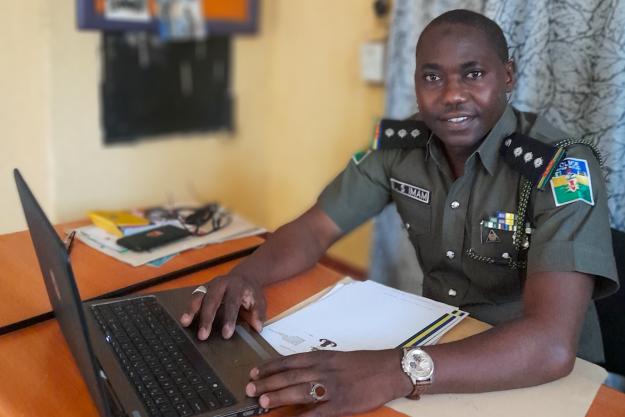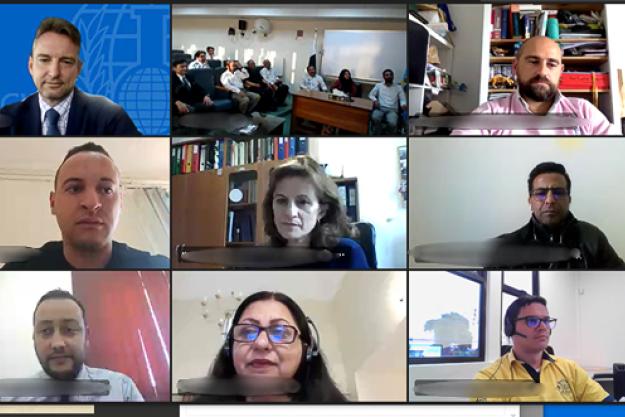
THE HAGUE, Netherlands—4 April 2022—First responders from 49 Member States of the Organisation for the Prohibition of Chemical Weapons (OPCW) enhanced their knowledge of detection, identification, monitoring and sampling of chemical warfare agents and toxic industrial chemicals. The skills were gained during an online course on reconnaissance and sampling operations in a highly contaminated environment, held from 14 March to 1 April. The event was attended by 160 emergency professionals and conducted by the OPCW in partnership with the Defence Science and Technology Organisation (DESTO), Pakistan.
Director Syed Hasnain Haider, Head of the Chem-Bio Defence Directorate of the Chemical Weapons Convention National Authority of Pakistan remarked: “As a highly responsible State Party to the Chemical Weapons Convention, Pakistan fully supports the noble cause and untiring efforts of the OPCW to make the world a safer place. Pakistan remains fully committed to cooperating with the OPCW and to assisting other States Parties to enhance the knowledge, skills and capacity of their emergency responders. I wish to convey our special and sincere gratitude to the OPCW for its ever-available and unflinching support for assistance and protection activities, as well as to all the States Parties for their cooperation.”

The representative of the OPCW’s Assistance and Protection Branch stated: “This course resulted in a record 160 participants representing 49 countries from all regions of the world. These numbers demonstrate the engagement and commitment of Member States to enhance their domestic first response capabilities for managing chemical incidents. This course demonstrates the Secretariat’s capability to deliver robust online trainings, incorporating lessons learned and experience gained during challenges thrown at us by the pandemic.”
Participants learned about the theoretical and practical aspects of detection, identification, monitoring and sampling. They also further developed decontamination techniques for reconnaissance and sampling operations during chemical incidents. The course also covered safety measures for dealing with chemical emergencies.
Participants included military, police, customs, and other civilian professionals from a range of emergency response backgrounds and represented Member States from every OPCW regional group: Africa, Asia, Latin America and the Caribbean (GRULAC), Eastern Europe, and Western European and Other States (WEOG).

Background
As the implementing body for the Chemical Weapons Convention, the OPCW, with its 193 Member States, oversees the global endeavour to permanently eliminate chemical weapons. Since the Convention’s entry into force in 1997, it is the most successful disarmament treaty eliminating an entire class of weapons of mass destruction.
Over 99% of all declared chemical weapon stockpiles have been destroyed under OPCW verification. For its extensive efforts in eliminating chemical weapons, the OPCW received the 2013 Nobel Peace Prize.
